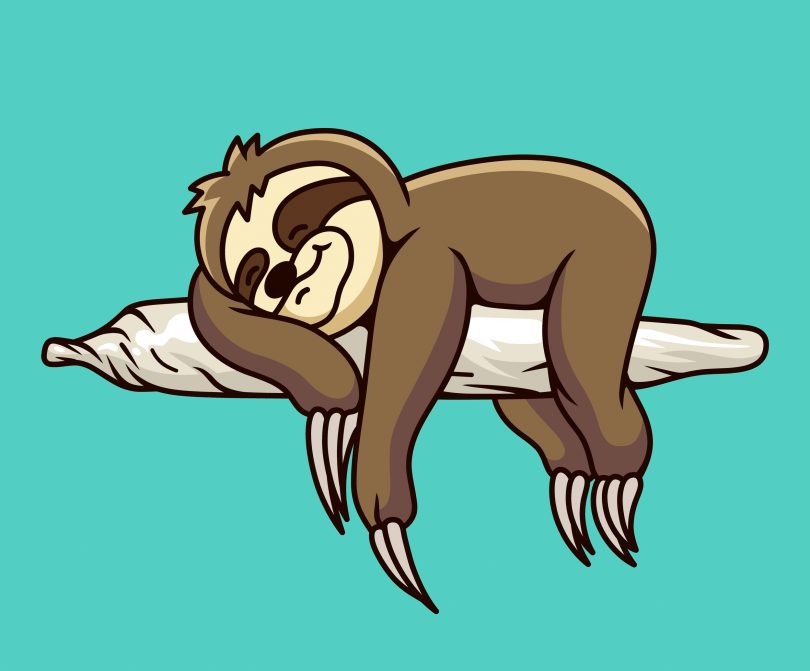One of the most common misconceptions about cannabis users is that marijuana makes them lazy, unmotivated, slothful bums that just lay around watching movies, playing video games, and eating a pantry’s worth of snacks on the daily.
While no one can deny that you might get the munchies and want to relax after smoking weed sometimes, the fact of the matter is, these side effects are related to the strain of cannabis you’re using and that plant’s specific genetics. It can’t be blamed on cannabis use as a whole. So, although many people think cannabis users are lazy because of the cannabis, the real reason might be something else entirely. Actual scientific research suggests that the “lazy stoner” stereotype is not only inaccurate, but the complete opposite is true in most cases.
Are you a cannabis aficionado who would like to learn more this incredible plant, as well as gain access to exclusive deals on flowers and other products? If so, make sure to subscribe to The CBD Flowers Weekly Newsletter for the best of the best that this industry has to offer.
The Lazy Stoner Stereotype and Why It’s Nonsense
It still remains unclear where this stereotype originated, or why it continues to have such a stronghold over public perception of cannabis users. What we do know is that the lazy stoner stereotype is overplayed, inaccurate, and downright damaging. Outdated cannabis stigma is one of the primary reasons that people continue to vote against legalization measures.
“If we think about the typical ways you think of cannabis, it’s making you more relaxed and maybe not as motivated to get out of the house, and as an exercise researcher, that’s concerning,” says Angela Bryan, a professor in CU Boulder’s Department of Psychology and Neuroscience. “On the other hand, there’s some really good longitudinal data that shows that long-term cannabis users have lower weight, lower risk of diabetes, better waist-to-hip ratio, and better insulin function. It’s kind of a scientific quandary, so we thought we should do investigations to see whether there really is a problem that might be happening, or if cannabis could even be a benefit to physical activity.”
NEW: Delta 8 + Delta 10 Vape Carts
Experience the new high of Delta 10 THC!

It’s true that cannabis can help people relax and even sleep better, but according to a study of 2,092 U.S. adults, frequent and light cannabis users generally reported more physical activity than non-users. The results were published last week in the Harm Reduction Journal. When compared to earlier researched conducted at the University of Colorado a couple years prior, the picture is pretty clear: cannabis users are definitely NOT lazy.
In both studies, participants had their physical activity monitored by accelerometers, which are devices used to track the length and intensity of physical activity (not including water sports). This is much more accurate than just relying on respondents to fill out questionnaires, as that method is often subject to self-reporting biases.
Researchers found that overall, occasional cannabis users had activity rates that were similar to non-users, although slightly better. However, “frequent cannabis users engaged in more physical activity than non-current users,” the researchers wrote in their findings. There were a few limitations to account for, like the fact that many cannabis users were starting off with lower body mass indexes than non-users, and respondents who smoked tobacco in addition to cannabis tend to be less physically active. Either way, the lazy stoner as we know it from media portrayals, simply does not exist.
The Lazy Gene
So that brings us to the main point, that cannabis use is unrelated to laziness, and there could be deeper, underlying issues at hand. Regular physical activity is a crucial part of living a healthy lifestyle – this is a hard fact, but the majority of Americans spend their waking hours sitting: be it driving from place to place, sitting in front of the tv or computer, or even sitting outside watching their kids play, fishing, etc. Many of our recreational activities have grown quite sedentary. A lifestyle void of physical activity can lead to a variety of health issues including obesity, cardiovascular disease, and cancer.
While most of us are inclined to see laziness as a character flaw, Frank Booth, a professor in the University of Missouri College of Veterinary Medicine has a different theory. When observing the animal world, we can see that some species are more likely to be physically active while others are known to be “lazy” – like German Shepherds vs American Bulldogs. Focusing on this concept, booth was able to identify a specific gene related to physical inactivity in rats that he believes can also play a roll in human sedentary behavior. He published his results, titled “Overexpression of Protein Kinase Inhibitor Alpha Reverses Rat Low Voluntary Running Behavior”, in the journal Molecular Neurobiology.
“Previous research has shown us that genes play some role in physical inactivity,” said Frank Booth, a professor in the MU College of Veterinary Medicine. “As inactivity leads to chronic disease, we wanted to identify which genes were involved and discovered one in particular, the Protein Kinase Inhibitor Alpha gene, that played a significant role.”

In the 2009 study, Booth took 80 male rats and bred them with 80 female rats. He then placed the rats in voluntary running wheels, similar to those sold in pet stores, and kept track of which rats ran the most and least. Over the next decade, Booth selectively bred the active rats with other active rats, and the lazy rats with other lazy ones, to see if genetics are at play. He found that the “lazy” rats, had significantly less of the Protein Kinase Inhibitor Alpha gene.
“What makes gene therapy difficult is that most chronic diseases are not caused by just one gene,” Booth said. “For example, there are more than 150 gene variations involved in type 2 diabetes. However, this study is paving the way for future research to identify other genes that might be involved in physical inactivity in humans as well.”
According to government statistical data, diseases associated with physical inactivity account for more than 11% of total health care spending in the United States, a whopping $138 billion. “Physical inactivity contributes to more than 40 chronic diseases,” Booth said. “Rather than focusing on ways to treat chronic diseases after they have already developed, understanding the contributing factors to physical inactivity could help prevent those chronic diseases from occurring in the first place.”
In addition to genetics, many other factors can contribute to feelings of laziness. Prescription medications, poor diet, alcohol, tobacco, and lack of exercise can keep someone in the cycle of inactivity.
… Or Maybe It’s All in Your Head
Often, we confuse the state of feeling lazy, with actually being lazy as if it’s an inherent character trait. Although some may experience genetic issues like I mentioned above, many just get stuck in the psychological cycle of being lazy. If you think about it, even most of people we personally view as lazy in our own lives are able to find tasks and activities that motivate them.
This applies to most people, honestly. The majority of us are very driven in areas that we find easy, stimulating, or worthwhile. Activities that provide instant gratification (like shopping, gaming, messaging with friends, posting on social media, etc.) are much easier to do willingly and without procrastination.
Activities that require serious effort and long-term commitment can be more difficult to see through to the end, because it takes much more time and work to reap the rewards. For someone to put forth the effort to begin a project, they need to value the reward more than their loss of comfort. Unfortunately, many people are reluctant to trust that their efforts will even pay off at all. Simply put, if there’s no guarantee that they’ll succeed, why bother trying at all? People who are already confident and self-aware are more likely to take on challenging endeavors and overcome any existing lazy tendencies, because they trust in their ability to succeed.
Another consideration is that many of humans just lack the foresight to think about the long-term effects of their actions. Like binge drinking all weekend without caring about how tired, hungover, and awful you may feel and look the following day. Remember, just because something feels good in the moment does not necessarily mean it should be pursued, just like some situations that are hard or painful don’t need to be avoided.
You can think of the brain as a road map, or large web, in which all the possible mental states exist. Happiness, sadness, anxiety, jealousy, and yes, laziness, are all in this web. At multiple times throughout every day, we make decisions that move us in a certain direction, and it can be very easy to get stuck going in the same direction.
For instance, you just experienced a painful breakup and you’re feeling a bit depressed. You’ve been holed up in your home for weeks and some of your close friends call, urging you to spend time with them and get your mind away from things. You can chose to go with them, which could break the cycle of sadness that you’re current trapped in… or you could chose to stay in, and continue wallowing in misery. It might feel awkward, going out for the first time in so long and conversating with people when you’re used to being alone, but it will be rewarding and beneficial for your mental health… whereas the alternative seems easier but keeps you stuck in the same emotional state.
The same thing applies to lazy tendencies. We can make choices that keep us sedentary (scrolling social media, watching tv, etc.), or we can take actions that push us in a different direction (working out for 30 minutes, going for a walk, bike ride, etc.). In many situations, laziness is just a state of mind that we need to actively overcome.
Final Thoughts on the Lazy Stoner
Cannabis does NOT make people lazy… the lazy stoner does NOT exist. It’s a nonsense stereotype that serves no purpose other than to keep cannabis prohibited. Stop thinking of yourself as inherently lazy. True laziness can be caused by any number of factors such as genetics, diet, health conditions, medications, and mental state. Sometimes, these issues can be exacerbated by cannabis (let’s face it, we all know a lazy stoner that seems to live up to every negative stereotype that exists), but that doesn’t mean there is always a correlation.
Thank you for stopping by CBD TESTERS, your hub for all things cannabis-related. Remember to subscribe to The CBD Flowers Weekly Newsletter for more articles like this one, and for access to exclusive deals on flowers and other products. Looking for the Best Delta 8 THC deals? Subscribe to the Delta 8 Weekly newsletter!









